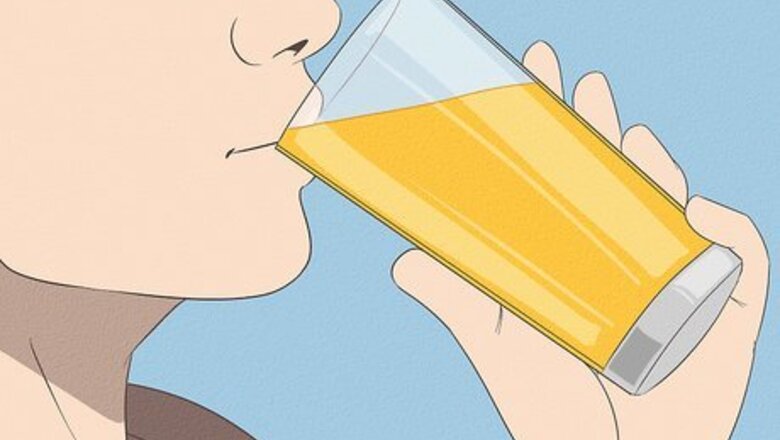
views
Whitening Skin with Antioxidants from Citrus or Papaya
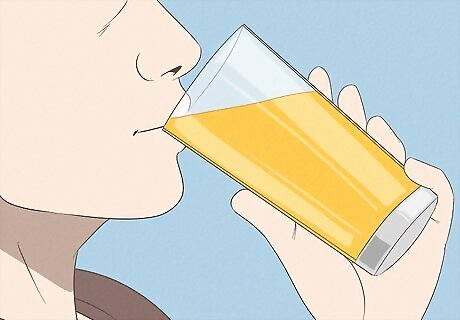
Drink citrus juice. Drinking a citrus juice like orange juice may help to inhibit UV induced pigmentation.
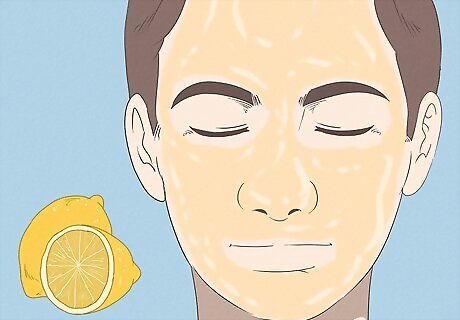
Use citrus to make a mask. Citrus fruits contain vitamin C, which promotes collagen production (necessary for the creation of new skin cells), is a powerful antioxidant and has been shown to inhibit skin darkening due to UV exposure. Lemons tend to work best, but any citrus fruit will work, including oranges, limes, and grapefruit. You can obtain similar results from papaya.
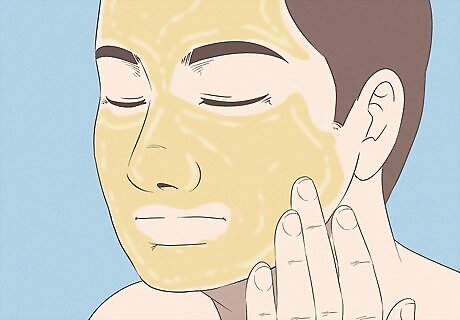
Squeeze the juice from the fruit and dilute with water. You can apply the diluted juice directly to your face, or combine with honey to make a mask. Honey both thickens the juice to make a mask possible and has its own health benefits: it is an antimicrobial, moisturizes the skin and prevents wrinkles.
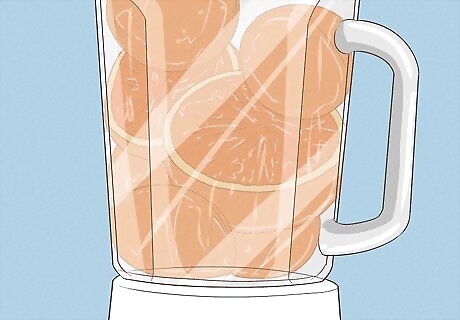
Consider using the entire fruit. The peel and fleshy parts of citrus fruit contain compounds that help to whiten the skin. For even better results, consider adding them in one of two ways: Dry the peel, grind it up, and add it to your mask. Consider mixing with yoghurt to produce a soothing mask. Chop the entire fruit into pieces and process it, skin and all, in a fruit processor. Use the resulting paste as the base for your mask.
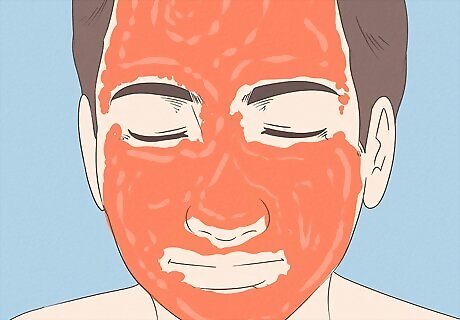
Use the seeds and skin if using papaya. While the flesh of the fruit is beneficial, the peels and seeds are the most potent part of papaya. Consider processing the papaya fruit along with the skin to produce a mask. For even better results, mix with lemon juice. You can purchase papaya seed extract and use it with honey to make a mask, or combine it with the processed fruit. Make your own papaya seed extract by crushing papaya seeds and placing them in water for two weeks. Shake daily. Filter and use the water in your mask.

Do not go outside while wearing the mask. The juice in citrus fruits can react with UV light to cause photodermatitis, a painful condition resulting in a rash, blisters or scaly skin.

Leave the mask on for 15 to 20 minutes. Wash it off with lukewarm water.
Whitening Skin with Fruits that Inhibit Melanin Production
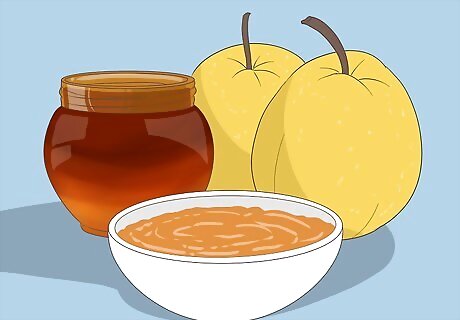
Use Asian pears in your mask. Blend the peel and fruit together along with honey as a binding agent to produce a mask. Pears contain arbutin – a naturally occurring form of hydroquinone, which has been proven to be an effective tyrosinase inhibitor. Tyrosinase is an enzyme that helps to produce melanin, the pigment that darkens skin, so inhibiting will produce a skin-whitening effect. Be sure to include the peel, which contains much higher concentrations of arbutin than the fruit. Asian pears (pyrus pyrifoli) contain much more arbutin than American or European varieties. The best varieties to use are Yaquang, Hongpi, Quingpi, or Guifei. Be aware that arbutin has been reported to cause skin irritation for some people. If you develop skin irritation, stop using pear-based masks.
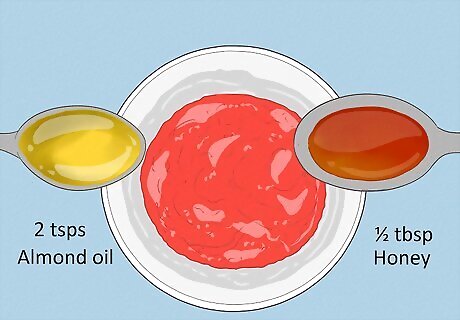
Make a mask with pomegranate fruit. Blend half a pomegranate, 2 teaspoons of almond oil, and ½ a tablespoon of honey to make a pomegranate mask. Pomegranate fruit contains punicalagins – compounds that have been shown to directly inhibit melanin production.
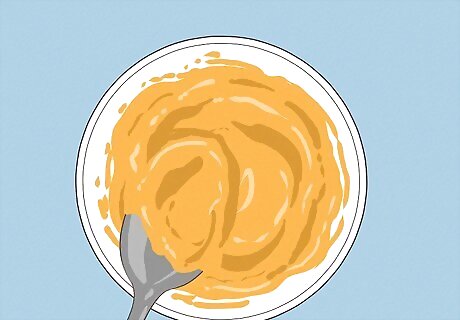
Use pineapple to make a mask. Blend four slice of pineapple in a food processor along with a half a tablespoon of honey. Pineapple fruit contains compounds that act as tyrosinase inhibitors, thereby whitening skin.
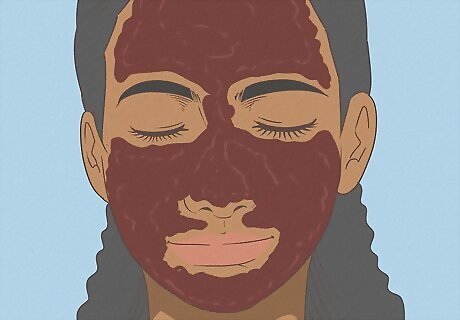
Make a facial mask using figs. Compounds in fig fruit have been shown to decrease melanin and moisturize skin. Mash the fruit and apply in a mask.
Whiten Skin Using Fruit Extracts
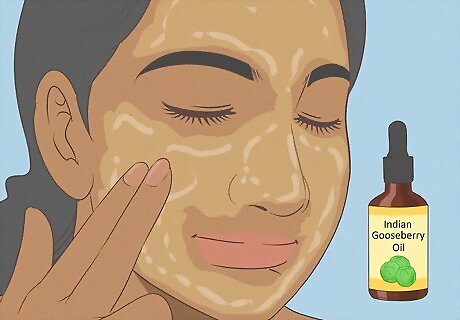
Make Indian gooseberry oil and apply it with moisturizer or as a mask. Gooseberry fruit extract contains powerful antioxidants that help to repair damaged skin, as well as phenols that inhibit tyrosinase activity to lighten skin. You can purchase gooseberry oil or make your own. To make your own, grate the gooseberries and squeeze out the juice from the gratings. Add coconut oil to the juice in a 1 part juice to 2 part coconut oil ratio. Simmer for 10 to 15 minutes. Skim off and store the resulting oil. Add the oil to honey and yoghurt to create a mask, or add it to another fruit mask. Alternately, you can dilute the oil with moisturizer and apply that once a day. Be very cautious using homemade extracts, as you will not be sure of the exact strength, and too much can cause an allergic reaction.
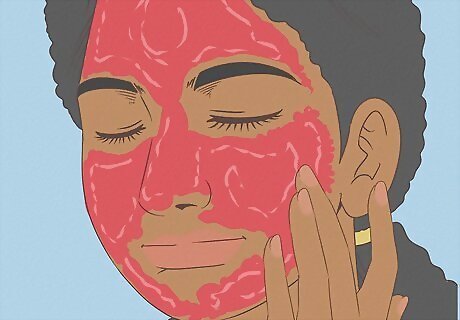
Use bearberry fruits or extract. Bearberry bushes are a common ground cover that you can grow yourself on exposed, acidic soil. The fruits, and even more so the leaves, contain arbutin, which has been shown to whiten skin. You can mash up the fruit and apply it in a mask with honey, purchase bearberry extract or make your own. To make your own extract, chop up some bearberry leaves and fruit. Place them in a large jar and cover with vodka or diluted ethanol (about 40% abv). Seal the jar and place it in a dark place at room temperature. Shake the bottle once a day for two weeks. At the end of that time, place a cheesecloth over the bottle and pour the extract into another container. Dilute the extract with moisturizer and apply it to your face twice daily. Be very cautious using homemade extracts, as you will not be sure of the exact strength, and too much can cause an allergic reaction.
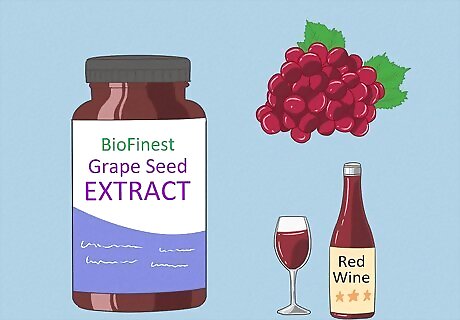
Consume grape seed extract. Grape seeds contain proanthocyanidin, a powerful antioxidant that has been shown to inhibit tyrosinase production and whiten skin. Proanthocyanidin also has a range of other health benefits, including reducing the risk of diabetes and heart disease. You can purchase grape seed extract in pill form or make your own from red grapes. You can also get proanthocyanidin by drinking red wine or eating red grapes with seeds.




















Comments
0 comment